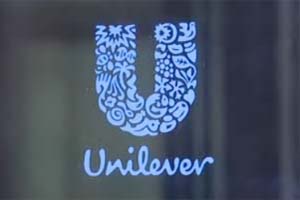 d second-quarter revenue growth that missed estimates as Asian emerging markets continued to slow and the struggling food business posted another sluggish result.
d second-quarter revenue growth that missed estimates as Asian emerging markets continued to slow and the struggling food business posted another sluggish result.Underlying sales rose 3.8 per cent in the period ended June 30, the company said today in a statement. The median estimate of 15 analysts surveyed by Bloomberg was for a 4.3 per cent increase.
The slowdown in developing markets such as Brazil, Argentina and China reflects weakening economic growth and price increases necessitated by sliding currencies. Almost two-thirds of food sales come from mature markets such as the US, which has prompted the sale of brands such as Slim-Fast and Ragu. The volume of food sold by Unilever in the quarter was little changed despite the benefit of Easter falling in the period.
“Unilever’s foods business is the real dog,” Rahul Sharma, managing director of London’s Neev Capital, said in an e-mail, citing a lack of innovation and frequent price increases, which have damped sales, particularly in the US.
Chief Financial Officer Jean-Marc Huet said the Easter benefit to underlying sales growth in the quarter was less than the 0.4 per cent to 0.5 per cent lift he predicted earlier in the year. He declined to be more specific. Unilever has introduced new food items such as spreads with butter, and Huet said sales of spreads were “stable” in the quarter after declining about 5 per cent in the first three months of the year.
Weaker Volume
The volume of goods sold rose 1.9 per cent in the quarter, lower than the 2.5 per cent median estimate, as shipments of health and beauty, home-care, and refreshment products such as tea and ice cream all slowed from the first quarter.
Underlying sales in emerging markets increased 6.6 per cent, trailing the 10 per cent expansion in the same period of last year, while revenue in developed markets rose 0.3 per cent. Underlying sales exclude the effect of acquisitions, disposals and currency fluctuations.
Slowing Growth
Growth in Unilever’s markets has slowed to 2.5 per cent on average from 4 per cent a year ago, Chief Executive Officer Paul Polman said on a conference call with analysts. Still, the company is holding or gaining market share in 60 per cent of its businesses, up from 55 per cent last year, he said, helped by new products such as compressed deodorants and Clear anti-dandruff shampoo, which just entered Japan.
“For the time being, market growth rates are clearly subdued,” Polman said. “We have experienced a further slowdown in the emerging countries, while developed markets are not yet picking up. It may be a few more quarters before we see the first signs of meaningful recovery.”
Total revenue in the quarter fell 5.5 per cent to €24.1 billion, hurt by the weakness of currencies such as the Argentine peso, Venezuelan bolivar and the Indonesian rupiah against the euro. Argentina accounts for about 2 per cent of sales, while Venezuela is less than 0.5 per cent, Huet said.
‘Growth Trap’
“The company remains in a slight growth trap which is attributable to its mature markets, where currencies are relatively firm, being static in contrast to the emerging markets, where currencies fell sharply in the past 12 months,” said Chris Wickham, an analyst at Oriel Securities.
The core operating margin, a measure of profitability, was unchanged at 14 per cent in the first half, measured in current exchange rates. Net income in the first half rose 16 per cent to 2.82 billion euros, also in current exchange rates.
“While Unilever came across as being relatively confident, it is clear that there is no expectation that the market environment will materially improve in the near future,” Jeff Stent, an analyst at Exane BNP Paribas, said in a note. “We suspect we are looking at a new norm.”





